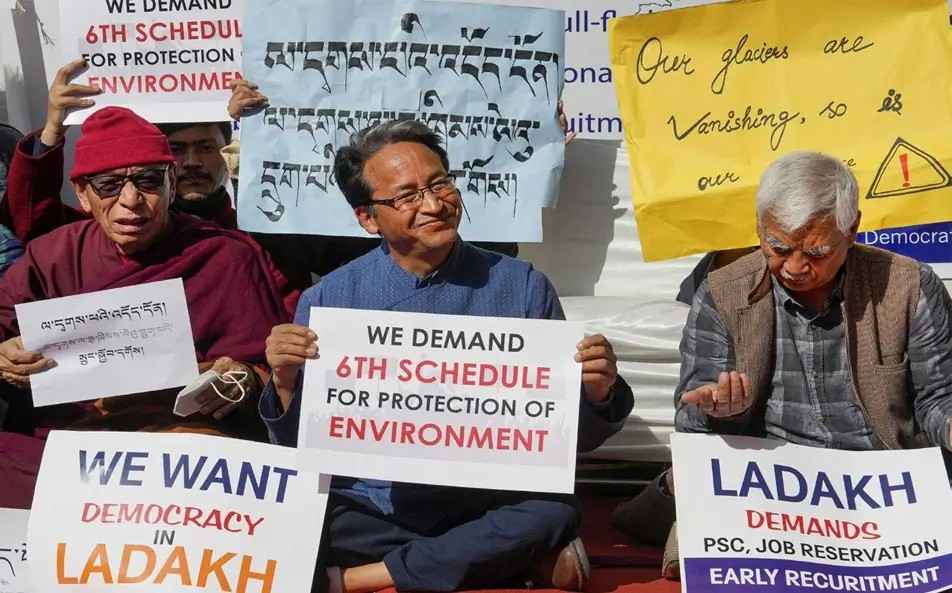Ladakh’s New Reservation Policy and Statehood Demand
Ladakh’s New Reservation Policy and Statehood Demand
Why in the News?
The President of India notified four key regulations for Ladakh on June 3, 2025, implementing a new Ladakh reservation policy that grants 95% government jobs reservation, fixing official languages of Ladakh, and reserving seats for women—amid continuing civil society demands for Statehood and constitutional safeguards. This comes in the wake of significant changes following the abrogation of Article 370 and Article 35A, which altered Ladakh’s status.
Ladakh’s Reservation and Domicile Rules:
- The Union Territory of Ladakh has introduced a 95% reservation in government jobs through the Ladakh Civil Services Decentralisation and Recruitment Regulation.
- 85% is reserved for permanent residents of Ladakh, 5% for those with a domicile certificate after a continuous 15-year stay since October 31, 2019, and 10% for the Economically Weaker Sections (EWS) category. An additional quota for Scheduled Tribes is also included within these categories.
- Tehsildars, who are local revenue officials, will issue domicile certificates to eligible individuals. This crucial document, which confirms an individual’s domicile status, is essential for accessing the benefits of the new Ladakh reservation policy.
- This makes Ladakh’s job reservation among the highest in India, aimed at protecting local employment opportunities.
Other Key Regulations Notified:
- Four regulations were notified by a high-powered committee:
○ Ladakh Official Languages Regulation
○ Civil Services Recruitment Regulation (Amendment)
○ Hill Development Councils Regulation (Amendment)
○ Union Territory of Ladakh Reservation Regulation (Amendment)
- The official languages of Ladakh now include English, Hindi, Urdu, Bhoti, and Purgi, reflecting the linguistic diversity of the region. This expansion of official languages aims to preserve and promote the rich cultural heritage of Ladakh.
- One-third of seats in Leh’s Ladakh Autonomous Hill Development Councils to be reserved for women, on a rotational basis.
Statehood, Sixth Schedule, and Future Demands
- Ladakh civil society, under Leh Apex Body (LAB), Kargil Democratic Alliance, Ladakh Buddhist Association, and the People’s Movement for Constitutional Safeguard, continues to demand:
○ Statehood
○ Sixth Schedule inclusion
○ Separate Lok Sabha seats for Leh and Kargil
○ Protection of land, resources, and jobs
- Despite the new government jobs reservation policy and the role of tehsildars in determining domicile status, talks are ongoing with the Union government, which has assured further discussions on employment protection and land protection measures.
Sixth Schedule: Key Features |
|
● Provision Under Article 244(2): Applies to Assam, Meghalaya, Tripura, and Mizoram to govern tribal areas. |
|
● Objective: Safeguards tribal land, resources, and culture; prevents transfer to non-tribals. |
|
● Autonomous Districts: Tribal areas are administered as Autonomous Districts. |
|
● Autonomous Regions: If multiple tribes exist, the Governor can create Autonomous Regions. |
|
● Governor’s Powers: Can organise, reorganise, rename districts and regions. |
|
● District Councils: Each district has a 30-member council (up to 4 nominated, rest elected). |
|
● Regional Councils: Established for each autonomous region to ensure tribal self-governance. |




